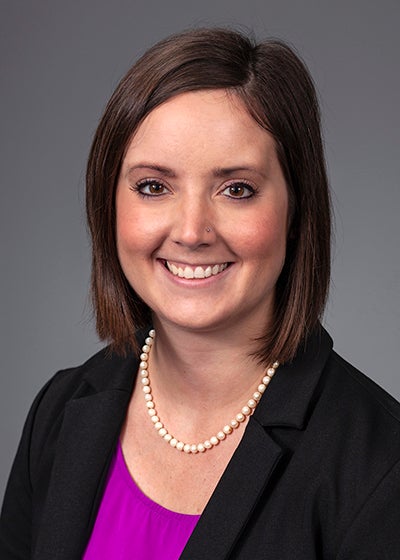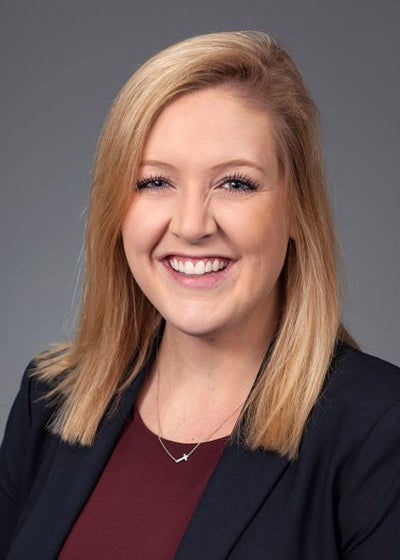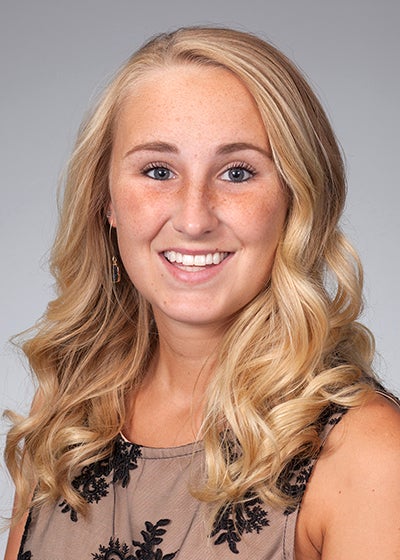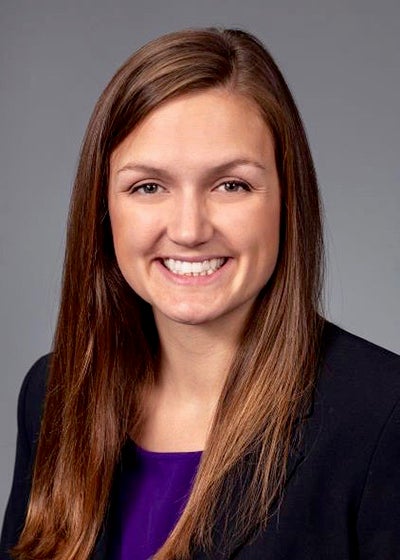ECU med students add health disparities certificate to service-learning track
Four students in the Brody School of Medicine at East Carolina University are the first to earn a graduate certificate in ethnic and rural health disparities (ERHD) as part of the school’s service-learning distinction track.
Fourth-year medical students Ellie Cochran, Hannah Conley, Hannah Smith and Caroline Wainright completed the online certificate in efforts to better serve their patients—and to better understand the factors that influence patients’ lives and health.

Hannah Conley

Ellie Cochran

Hannah Smith

Caroline Wainright
“‘Knowledge is power,’ and this certificate is another experience that will help me become the best physician I can be,” Conley said. “A person’s health is influenced significantly by circumstances and factors outside of the hospital or clinic, and my completion of the ERHD certificate represents a major milestone in my education where I now know how to start addressing health disparity issues.”
Optional integration of public health classes has been an option for medical students since the first track offering, but certificate completion was made an option with the Class of 2021. It is now a track requirement, said Jennifer Crotty, director of the service-learning distinction track.
Brody offers distinction tracks in four areas: health system transformation and leadership; medical education and teaching, research and service learning. Through the tracks, students can independently pursue an area of interest reflecting the core values that led them to select a medical career. Each track offers a rigorous, longitudinal approach and includes a capstone portfolio. Distinction track students work under the guidance of mentors.
The service-learning distinction track “prepares, encourages and supports medical students who work domestically and internationally with medically underserved, marginalized and rural populations during their medical school career,” according to its program description.
“The service-learning track focuses on teaching student doctors to know their communities so that they can meet community need as physician-leaders,” said Dr. Jennifer Crotty, director of the service-learning distinction track. “This is directly what Brody was built to do.”
Physicians who understand and strive to understand the socioeconomic iniquities in our country are better prepared to serve communities and advocate for patient needs, Crotty added.
“My generation of physicians was not trained on how to do this in a scholarly, thoughtful way and has had to learn while on the job,” she said. “By equipping students with knowledge of how to approach community partners, they graduate medical school with skills that will serve them for their entire careers.”
Conley, from Raleigh, is preparing for a career in obstetrics and gynecology.
“As a future OB/GYN, I want to continue serving culturally diverse and underserved women,” she said. “I also aspire to integrate my passion for reducing health care disparities in my practice and am committed to always putting my patients first. Because of the ERHD program and SLDT, I will be able to accomplish those goals. They have increased my knowledge and skills in the area of cultural competency, identifying and screening for social determinants of health, and working with community partners to develop and implement service projects.”
Conley said her biggest takeaway from the certificate program is that “culture is the most overlooked problem in health care and medicine.
“Researchers and health care providers need to spend more time understanding and appreciating cultural health patterns so that we can decrease health disparities. Prior to this certificate, I had not realized how little attention we spend understanding cultures and their relationship to health.”
Cochran, from Concord, N.C., plans to be a pediatrician and said the certificate and distinction tracks have prepared her well.
“I am thankful for the opportunity to delve into this important topic and look forward to using this information in my future practice as a pediatrician,” she said.
Cochran was an English teacher prior to medical school and championed childhood literacy, a cause that has translated to her medical school career through her efforts to improve reading skills among socioeconomically disadvantaged students. She is also involved in the local community as a co-director of the medical student-led free clinic, Greenville Community Shelter Clinic, which primarily serves the homeless population.
“As a future pediatrician, I must understand that health disparities and social determinants of health, from nutrition to housing to education, affect one’s health during childhood and impact the trajectory of his or her life,” she said. “A pediatrician can improve his or her community through individual relationships and larger advocacy movements. I look forward to applying this knowledge within my practice as a resident and physician.”
Dr. Eric Bailey, director of the ERHD program said the collaboration between the distinction track and certificate program developed because of growing interest in ERHD-related courses over the years and “the growing interest among key Brody medical school administrators who were searching for more comprehensive, community-based and culturally relevant training for their medical students,” he said.
Smith, from Mount Pleasant, wants to pursue family medicine and academics.
“This accomplishment has meant a lot to me, as we focused on the health disparities that my future patients face and worked to identify ways that we can best serve our future communities. I grew up on a farm in a rural town, and I felt that I was carrying my heritage forward as we investigated the culture of rural underserved communities and addressed some of the barriers to health care that my neighbors faced growing up.”
Smith said the distinction track and certificate have helped deepen her understanding of service and integrating service-learning into community partners she works with.
Wainright, from Winterville, is also pursuing family medicine and said the track has taught her to identify and address specific needs and barriers to care for underserved populations.
“Throughout medical school, we study the pathophysiology of each organ system in depth,” she said. “The SLDT and the ERHD has taught me that an individual’s health is impacted greater by addressing social determinants of health and barriers to care.”
She added that the distinction track provided context for how factors like income can affect health.
“I would not expect my patient to understand the importance of taking his/her blood pressure medication if they are dealing with the stress of making ends meet,” Wainright said. “As a future primary care physician, it is necessary to develop trusting relationships with our patients and have a complete understanding of what their home life may look like. When we do this, we will then begin to see improvements in that individual’s health.”
Crotty said the students’ accomplishments reflect their dedication to the mission set forth by the Brody School of Medicine.
“Brody needs to meet the needs of the East, and my service-learning students are immersed in their community with a community partner, learn how to lead themselves and others and learn how to advocate for patients who do not always have a voice,” she said. “Physicians are first-hand witnesses to the stark health inequity being multiplied by the pandemic, and this certificate helps open the eyes of students to the history of our patients’ situations, allowing them to advocate for what is best and right.”